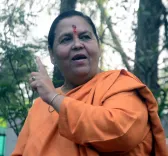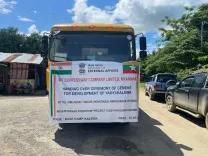Is the Election Commission's SIR Process a Form of 'Silent Invisible Rigging'?

Synopsis
Key Takeaways
- Allegations of bias in the Election Commission's SIR process.
- The impact of SIR on voting rights is a critical issue.
- Potential electoral outcomes in West Bengal could shift.
- Public response and protests are anticipated.
- The integrity of democracy is under scrutiny.
New Delhi, July 30 (NationPress) Trinamool Congress General Secretary and MP Abhishek Banerjee has recently accused the ruling BJP of manipulating the Election Commission of India (ECI) to undermine the voting rights of many individuals. He has labeled the commission's initiative known as 'Special Intensive Revision' as 'Silent Invisible Rigging'.
'The Election Commission is executing the SIR process in alignment with the BJP's interests. This initiative aims to strip a considerable number of people of their voting rights, affecting the very fate of our democracy. The commission is operating with bias, as seen in Bihar, where I trust the public will respond decisively,' Banerjee stated to reporters in the Parliament during the ongoing Monsoon session.
He further accused the BJP of fearing the will of the people, prompting them to engage in tactics aimed at skewing electoral outcomes in their favor.
Banerjee, also the nephew of West Bengal Chief Minister Mamata Banerjee, expressed that if the ECI were to implement SIR in West Bengal, it would yield a positive outcome for the Trinamool Congress.
'Should they proceed with this initiative in Bengal, the people will express their support and affection for Mamata Banerjee. The Trinamool Congress is poised to outperform its previous results in the 2021 Assembly elections and the upcoming 2024 Lok Sabha elections,' he remarked.
He insisted that the public would turn against the BJP in the upcoming elections. 'We will ensure that they do not hinder the voting process. If necessary, we will organize a larger protest against SIR in the national capital. However, their strategy will fail in Bengal,' Banerjee affirmed.
This assertion from Banerjee arises amidst growing apprehension regarding the ECI's plans to conduct a special intensive revision of West Bengal's voter list ahead of the 2026 Assembly elections. The commission recently completed a similar revision in Bihar, where over 60 lakh individuals were classified as doubtful voters.







